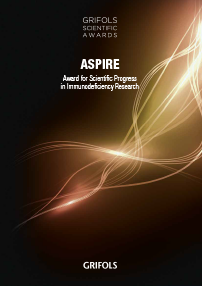Dr. Quentin Riller

Enteric virus associated hepatitis in patients with a defective antibody response (EVAHDAR) as a new immunopathological condition
Lay summary of project
Inborn errors of immunity (IEIs) consist of a broad panel of inherited conditions causing defects of immunity to various microorganisms. Besides infections, ill-defined manifestations related to immunodysregulation such as chronic lymphoproliferation, autoimmunity or inflammatory manifestations of various organs including inflammatory liver disease frequently occur. The latter represents a serious medical threat often overlooked while its pathophysiology is not well delineated. Antibody deficiencies such as common variable immunodeficiency (CVID) are at high risk of developing liver disease including nodular regenerative hyperplasia (NRH) defined by nodular transformation of liver parenchyma with frequent intra-lobular sinusoidal CD8+ T cells infiltration. We have recently described a similar hepatic condition in severe combined immunodeficiency recipients of hematopoietic stem-cell transplantation (HSCT) or gene therapy (GT). By various OMICs studies (metagenomic next generation sequencing, phenotyping by time-of-flight cytometry (CyTOF), single-cell RNA sequencing) we showed this condition was associated to i) a chronic enteric viral infection (Aichi virus, Norovirus, Sapovirus), ii) a CD8+ T cell infiltration in the liver with NRH iii) the expansion of an effector memory, non-cytotoxic, non-exhausted, activated CD8+ T cell subset, iv) a strong type I and II interferon signature and v) a persistent antibody deficiency. Finally, we showed this condition, which we named EVAH (enteric viral-associated hepatitis), was cured by a second HSCT concomitantly to the viral clearing after immune reconstitution. We hypothesise a similar process could explain liver disease including NRH that occur in other IEIs and in particular antibody deficiencies (CVID, X-linked agammaglobulinemia, combined immunodeficiencies but also acquired B-cell deficiencies). In EVAHDAR, we wish to provide a detailed picture of EVAH along 4 aims: i) to assess its scope of occurrence in inherited and acquired antibody deficiencies ii) to characterize the CD8+ T cells and the other immune subsets by performing deep immune phenotyping by CyTOF and single-cell RNA sequencing, iii) to determine the causal relationship between liver disease and enteric viral infection and iv) to study the role of immunoglobulins in the onset of EVAH. In conclusion, the study EVAHDAR is designed to help this decipher physiopathology of liver disease in patients with antibody deficiencies, establish the link with chronic enteric virus infection and pave the way to future treatment.
Brief biography
Dr. Quentin Riller is a French internal medicine resident in Paris and a post-doctoral researcher in immunology. He began his medical studies at Sorbonne University, where he chose to specialize in internal medicine and clinical immunology during his residency. He completed his Master 2 in Dr. Jean-Luc Teillaud's laboratory, studying the vaccinal role of monoclonal antibodies. He then joined Dr. Frédéric Rieux-Laucat's laboratory in Imagine Institute, Necker-Hospital for a PhD in immunology, focusing on monogenic causes of autoimmunity and immunodeficiency, particularly in patients with variants in the NF-kB pathway. During his PhD, he also described patients who had received hematopoietic stem-cell transplantation (HSCT) for severe combined immunodeficiency and developed unexplained late-onset hepatitis. Working with Professors Alain Fischer and Bénédicte Neven, they discovered that this late-onset hepatitis and related symptoms were linked to chronic enteric viral infection, which caused pathological CD8+ T cell activation in the periphery and affected tissues. Subsequently, they hypothesized that unexplained liver diseases in patients with deficient antibody production could be attributed to the same condition, termed EVAH (Enteric Viral Associated Hepatitis).


